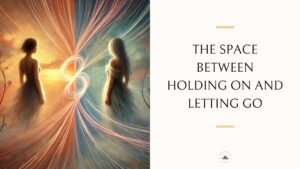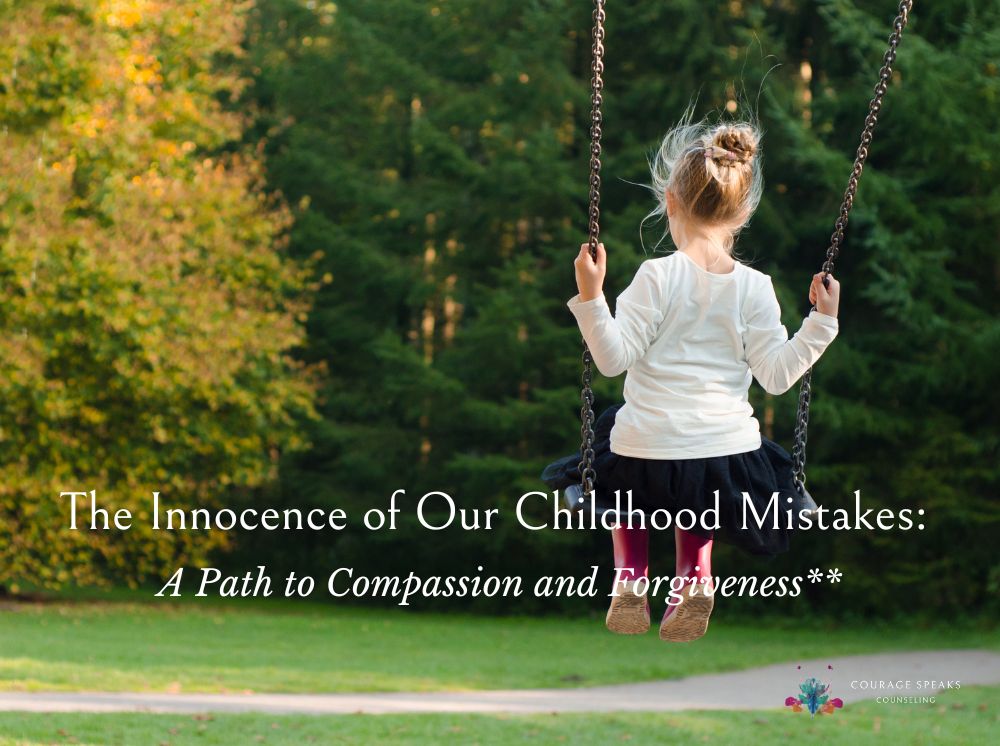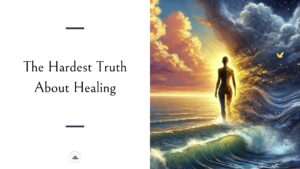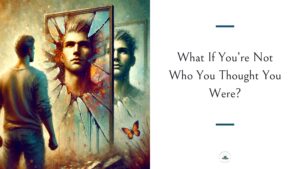As a trauma therapist, I often witness the heavy burdens adults carry from their childhood experiences. These burdens frequently manifest as shame or guilt over actions or behaviors that, through the lens of adulthood, seem unthinkable or wrong. Yet, when we were children, those very actions were often rooted in innocence, curiosity, and a desperate attempt to understand the world around us.
Looking back, it’s easy to judge our younger selves harshly. We think, “How could I have done that?” or “Why didn’t I know better?” But that’s precisely the point—we didn’t know better. Childhood is a time of experimentation, learning, and trying to figure out how to love and be loved in a world that often feels confusing and overwhelming.
Consider the child who steals money from a sibling. As adults, we might look back on such an act with embarrassment or deep regret. But for the child, it was likely an impulsive decision driven by a need or desire they couldn’t yet articulate or understand. Perhaps they wanted something they couldn’t afford or simply didn’t grasp the full impact of their actions. They weren’t acting out of malice; they were experimenting, testing boundaries, and learning the complex rules of family dynamics and trust.
When we reflect on these moments with the wisdom we’ve gained as adults, it’s crucial to recognize the growth that has occurred. The fact that we feel shame or guilt now is a testament to our evolution. We know better because we learned better. This realization can be a powerful tool in cultivating forgiveness and compassion for our younger selves.
Forgiveness doesn’t mean excusing harmful behavior or pretending it didn’t happen. Instead, it’s about understanding the context in which that behavior occurred. It’s about recognizing that as children, we were all trying to navigate a world we didn’t fully understand. We were making mistakes, learning from them, and slowly becoming the people we are today.
Compassion for our younger selves means acknowledging that we were doing the best we could with the tools and knowledge we had at the time. It’s about seeing our mistakes as part of a natural process of growth, rather than as evidence of some inherent flaw.
When we let go of the shame or guilt tied to our childhood actions, we’re not dismissing the importance of those experiences. Instead, we’re embracing the truth that they were part of our journey toward becoming more compassionate, understanding, and self-aware individuals. We can choose to see our past not as a series of missteps to be regretted, but as a path of learning that has brought us to a deeper understanding of ourselves and others.
In the end, weren’t we all just experimenting, learning, and trying to figure out how to love each other? And isn’t that the most innocent and human endeavor of all? By recognizing this, we can start to see our childhood mistakes for what they truly were—steps along the way to becoming the wiser, more empathetic people we are today. And in that recognition, we can find the forgiveness and compassion we need to let go of shame and guilt and fully embrace our growth.
Embracing Shadows, Illuminating Hope,
Chelsey Fjeldheim, LCSW
Empowering Souls on the Path of Healing
Copyright © 2024 Chelsey Fjeldheim, Courage Speaks Counseling




